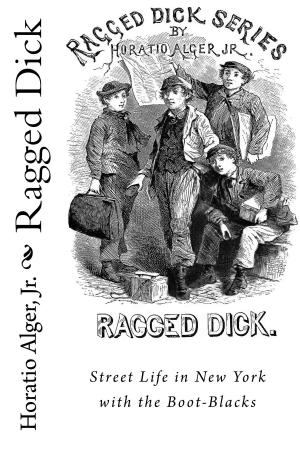Betty Leicester's Christmas (Illustrated Edition)
Kids, Teen, General Fiction, Fiction, Fiction - YA| Author: | Sarah Orne Jewett | ISBN: | 1230001440362 |
| Publisher: | Steve Gabany | Publication: | November 23, 2016 |
| Imprint: | Language: | English |
| Author: | Sarah Orne Jewett |
| ISBN: | 1230001440362 |
| Publisher: | Steve Gabany |
| Publication: | November 23, 2016 |
| Imprint: | |
| Language: | English |
When "Betty Leicester" appeared, this very judicious comment was made: "It is rather difficult to find the right kind of books for girls of fifteen and sixteen, and they are apt to experience a craze at this age for the silliest and most harmful kind of third-rate novels; but 'Betty Leicester' is just the right kind of story to put into such a girl's hands. It is bright, healthy, natural, and interesting to the reader from first to last. It is thoroughly friendly and companionable." Betty went to England soon after she inspired that story, and there she had a charming variety of good times, seeing famous places and people, and enjoying all her unfamiliar experiences. The most remarkable of these were connected with the Christmas season, and they are delightfully described in the story Miss Jewett tells. Source Atlantic (Magazine), July 1899.
This is a novellette. It's about 13,000 words. In print, it had 68 pages of text.
This edition of the book contains four original illustrations, rejuvenated, and six additional Christmas illustrations that are unique to this edition of the book.
Sarah Orne Jewett (September 3, 1849 – June 24, 1909) was an American novelist, short story writer and poet, best known for her local color works set along or near the southern seacoast of Maine. Jewett is recognized as an important practitioner of American literary regionalism.
She published her first important story in the Atlantic Monthly at age 19, and her reputation grew throughout the 1870s and 1880s. Her literary importance arises from her careful, if subdued, vignettes of country life that reflect a contemporary interest in local color rather than plot. Jewett possessed a keen descriptive gift that William Dean Howells called "an uncommon feeling for talk — I hear your people."
On September 3, 1902, Jewett was injured in a carriage accident that all but ended her writing career. She was paralyzed by a stroke in March 1909, and she died on June 24 after suffering another.
When "Betty Leicester" appeared, this very judicious comment was made: "It is rather difficult to find the right kind of books for girls of fifteen and sixteen, and they are apt to experience a craze at this age for the silliest and most harmful kind of third-rate novels; but 'Betty Leicester' is just the right kind of story to put into such a girl's hands. It is bright, healthy, natural, and interesting to the reader from first to last. It is thoroughly friendly and companionable." Betty went to England soon after she inspired that story, and there she had a charming variety of good times, seeing famous places and people, and enjoying all her unfamiliar experiences. The most remarkable of these were connected with the Christmas season, and they are delightfully described in the story Miss Jewett tells. Source Atlantic (Magazine), July 1899.
This is a novellette. It's about 13,000 words. In print, it had 68 pages of text.
This edition of the book contains four original illustrations, rejuvenated, and six additional Christmas illustrations that are unique to this edition of the book.
Sarah Orne Jewett (September 3, 1849 – June 24, 1909) was an American novelist, short story writer and poet, best known for her local color works set along or near the southern seacoast of Maine. Jewett is recognized as an important practitioner of American literary regionalism.
She published her first important story in the Atlantic Monthly at age 19, and her reputation grew throughout the 1870s and 1880s. Her literary importance arises from her careful, if subdued, vignettes of country life that reflect a contemporary interest in local color rather than plot. Jewett possessed a keen descriptive gift that William Dean Howells called "an uncommon feeling for talk — I hear your people."
On September 3, 1902, Jewett was injured in a carriage accident that all but ended her writing career. She was paralyzed by a stroke in March 1909, and she died on June 24 after suffering another.















